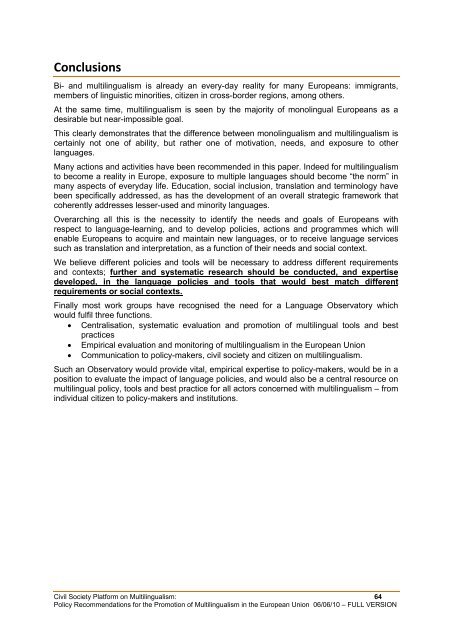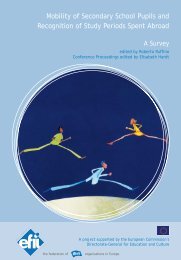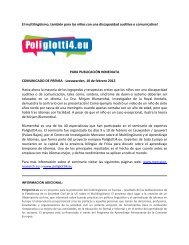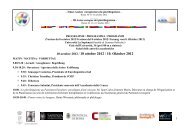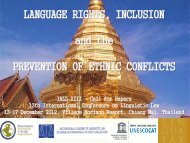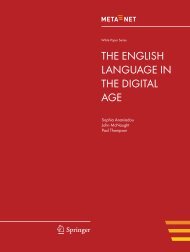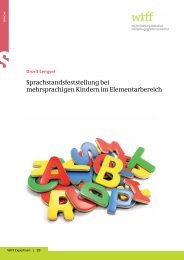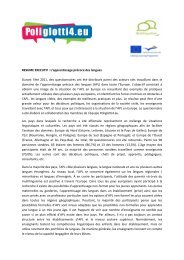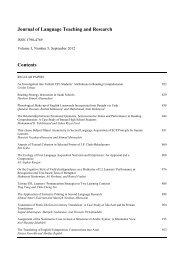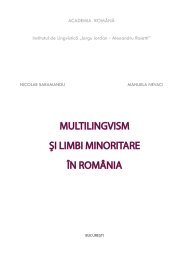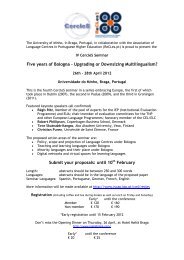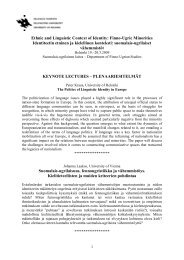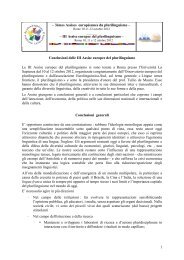FULL VERSION - European Commission - Europa
FULL VERSION - European Commission - Europa
FULL VERSION - European Commission - Europa
You also want an ePaper? Increase the reach of your titles
YUMPU automatically turns print PDFs into web optimized ePapers that Google loves.
ConclusionsBi- and multilingualism is already an every-day reality for many <strong>European</strong>s: immigrants,members of linguistic minorities, citizen in cross-border regions, among others.At the same time, multilingualism is seen by the majority of monolingual <strong>European</strong>s as adesirable but near-impossible goal.This clearly demonstrates that the difference between monolingualism and multilingualism iscertainly not one of ability, but rather one of motivation, needs, and exposure to otherlanguages.Many actions and activities have been recommended in this paper. Indeed for multilingualismto become a reality in Europe, exposure to multiple languages should become “the norm” inmany aspects of everyday life. Education, social inclusion, translation and terminology havebeen specifically addressed, as has the development of an overall strategic framework thatcoherently addresses lesser-used and minority languages.Overarching all this is the necessity to identify the needs and goals of <strong>European</strong>s withrespect to language-learning, and to develop policies, actions and programmes which willenable <strong>European</strong>s to acquire and maintain new languages, or to receive language servicessuch as translation and interpretation, as a function of their needs and social context.We believe different policies and tools will be necessary to address different requirementsand contexts; further and systematic research should be conducted, and expertisedeveloped, in the language policies and tools that would best match differentrequirements or social contexts.Finally most work groups have recognised the need for a Language Observatory whichwould fulfil three functions. Centralisation, systematic evaluation and promotion of multilingual tools and bestpractices Empirical evaluation and monitoring of multilingualism in the <strong>European</strong> Union Communication to policy-makers, civil society and citizen on multilingualism.Such an Observatory would provide vital, empirical expertise to policy-makers, would be in aposition to evaluate the impact of language policies, and would also be a central resource onmultilingual policy, tools and best practice for all actors concerned with multilingualism – fromindividual citizen to policy-makers and institutions.Civil Society Platform on Multilingualism: 64Policy Recommendations for the Promotion of Multilingualism in the <strong>European</strong> Union 06/06/10 – <strong>FULL</strong> <strong>VERSION</strong>


